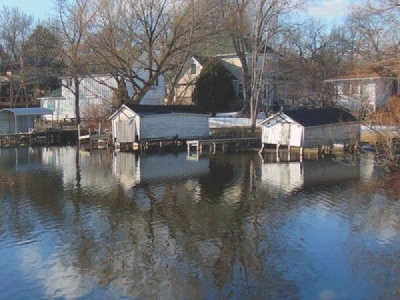
Posted on March 19, 2018
By Chris Frost, Lake Mills Leader
The wheels are slowly grinding at the Mill Pond as the Lake Mills City Council voted to take no action on a dredging study grant during its March 6, meeting.
City Manager Steve Wilke said a lot has changed at the Mill Pond since he arrived in Lake Mills.
He said the city is going to look at the dissolved oxygen in the pond, as well as the phosphorus, nitrates and what is causing some of the smells.
Council President Diann Fritsch said the city discussed the Mill Pond during the recent work sessions and she got the impression that they needed to do something immediately.
She said the city has more information since the meeting and found out it wasn’t the case.
“I think other people on the council have found out that same thing,” she said. “It isn’t a matter of we need to do something immediately on the Mill Pond.
City Manager Steve Wilke said they don’t need to rush into a decision, at this point.
“We have a lot of other issues we are trying to resolve,” he said. “Let’s see where this falls on the priority list and try and work through that process.”
He said grants do become available.
“I believe there is probably more data that should be gathered,” he said. “I know that Patricia (Cicero) and Susan Graham from the DNR (Department of Natural Resources) agree with me that there needs to be more data gathered.”
He wants to review the information with Graham.
“I want to see what she is looking at,” Wilke said. “Her memo looked like she was trying to spend a lot of money.”
He said Cicero had a different approach.
“We can do all that through groups and volunteers,” Wilke said. “I want to make sure that we get what we’re looking for, how we scope it and how we fall into that category and the quality of the information.”
He said the Mill Pond was last dredged in 1992 and had a study showing where the bottom was.
“Now you can go out there, and in the last 25 years, this is the amount of sedimentation that has filled in over that time-period,” he said.
Wilke said the city does have money for the project.
“The DNR felt the scope of the current report wasn’t significant enough in the production of research data,” he said. “Brandon and I both felt that it covered the topics they wanted and to cover more would have cost a significant amount of more money.”
He said if the city doesn’t follow the proper dredging schedule, the Mill Pond could eventually become marshland.
Patricia says not necessarily so, Wilke said, not in a significant period.
“A sedimentation study will give us some of that information,” he said. “How you want to use the Mill Pond has to be incorporated.”
City Councilwoman Vickie Schmidt said Cicero’s report could make the smells worse.
Wilke said, “depending on how you do it” they can make it worse and not ever recover.
“You can make it, so you hardly notice what happened,” he said. “A lot of it has to do with how it’s permitted, how the work is done, who does it, and the conditions in the Mill Pond and the lake around it.”
Source: Lake Mills LeaderChris Frost





